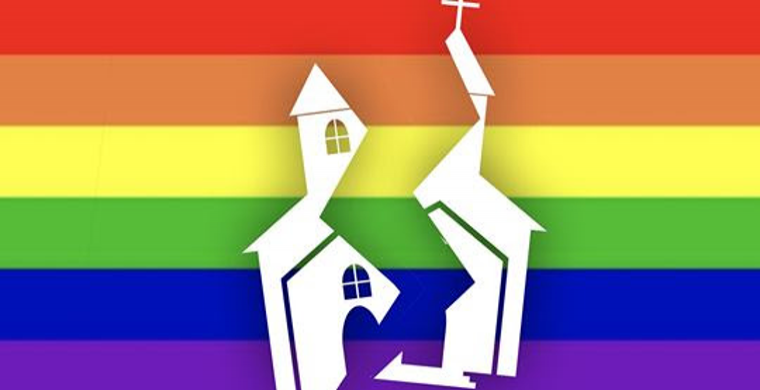Buttigieg Names Unitarian Universalist Shawna Foster as Faith Outreach Coordinator
The new Faith Outreach Coordinator grew up in The Episcopal Church
By JEFFREY WALTON
https://juicyecumenism.com/2019/08/13/buttigieg-shawna-foster/
Aug. 13, 2019
U.S. Presidential Candidate Pete Buttigieg became the first contender for the 2020 Democratic presidential nomination to name a faith outreach coordinator this month. Buttigieg, an Episcopalian, has shared regularly about his own religious faith. Prior to the second round of televised Democratic primary debates, Buttigieg visited St. John's Episcopal Church, a prominent traditionalist parish in Detroit.
The mayor of South Bend, Indiana tapped the Rev. Shawna Foster, a Unitarian Universalist Minister, to spearhead outreach efforts among religious groups. Foster also serves as a member of the Steering Committee of the Poor People's Campaign, which stresses government solutions to alleviate poverty.
Foster was until recently pastor of Two Rivers Unitarian Universalist, a small congregation in Carbondale, Colorado. The congregation describes itself as "on the forefront of Lesbian, Gay, Bisexual, Transgender, and Queer inclusion for more than 40 years, we are people of all sexual orientations and gender identities."
In February, Foster shared her dismay on Facebook about the United Methodist Church's General Conference enacting a Traditional Plan upholding clergy discipline on sexual morality:
"This is so sad," she wrote of Facebook. "I grew up Episcopal, where it seemed like progress was inevitable, and that mainline Christianity as a whole was moving towards an embodied love for all. To see this as an adult is to realize our rights and our struggles are precious. Many traditions do not accept women as clergy, and now even fewer accept LGBT+ clergy, making the religious world even smaller for people based on gender and sexual orientation. Even as there are religions and spirituality that can imagine a faith as expansive as the universe itself, it's so painful for a people to cry out and be denied in the name of God. I believe in a God that recognizes and loves all of creation, that creates us in a divine image of the holy, and that we are not born flawed or shameful. Each of us deserve to love and be loved in return. May all who suffer from the pain of a narrow religion that belies creation be comforted and know that they are loved beyond belief."
Foster's church announced itself as a sanctuary congregation in 2017, hosting a 42-year-old Mexican national who illegally entered the country in 1998.
Julie Zauzmer of the Washington Post has more in an August 9 article about the need for religious outreach in early primary campaigns:
"It's an area that Hillary Clinton was criticized for underutilizing in her unsuccessful 2016 campaign for president, in the view of some religious leaders in the Democratic Party. In the 2020 campaign, many Democrats have spoken openly of their own faith and their desire to strategically connect with religious communities.
Foster, who started work for Buttigieg's campaign this week, has a broad imperative to talk to all religious groups. She said she thinks mainline Protestants (those who are not evangelical and tend to be more liberal, both religiously and politically) have been overlooked by political campaigns and are probably sympathetic to the religious views of Buttigieg, an Episcopalian."
I'd take issue with the assertion that Mainline Protestants have been overlooked. Their officials are regularly involved in political advocacy (especially on the left-leaning side of the political spectrum). Mainline Protestant pastors like The Rev. William Barber were at the forefront of advocacy drives such as North Carolina's Moral Mondays campaign (Barber, an ordained Christian Church (Disciples of Christ) pastor, spoke at the 2016 Democratic Convention).
There may have been either an assumption by some Democratic candidates that Mainline Protestants were already firmly in their camp, or conversely that their denominational officials were not able to mobilize their church members effectively. Pew Research Center's Religious Landscape Study showed that Mainline Protestants (those in the pews, at least) aren't firmly in any party's corner, despite a general perception that their clergy are more likely to be left-leaning.
Buttigieg has struggled to attract support among African-American churchgoers, an important demographic in the early South Carolina primary. Mainline Protestants are disproportionately white, with most of the seven historic churches reporting less than 10 percent of their membership as non-white). It is unclear how Foster, a white former Episcopalian, might bridge that gap in places where the party is not as progressive on social issues.
The Religious Landscape Study reported that members of the United Methodist Church, a historically Mainline Protestant denomination, are 19 points more likely than the average American to lean toward or identify with the Republican Party, while Unitarian Universalists are 70 points more likely than the average American to learn toward or identify with the Democratic party. The study showed that Episcopalians are about 10 percent more likely than the average American to learn toward or identify with Democrats.
More from the Post's Zauzmer:
"Foster ... has a lot in common with Buttigieg: Both are millennials, LGBT people and military veterans. "If we want to split hairs, he's Episcopalian, and I'm Unitarian Universalist," she says with a laugh."














